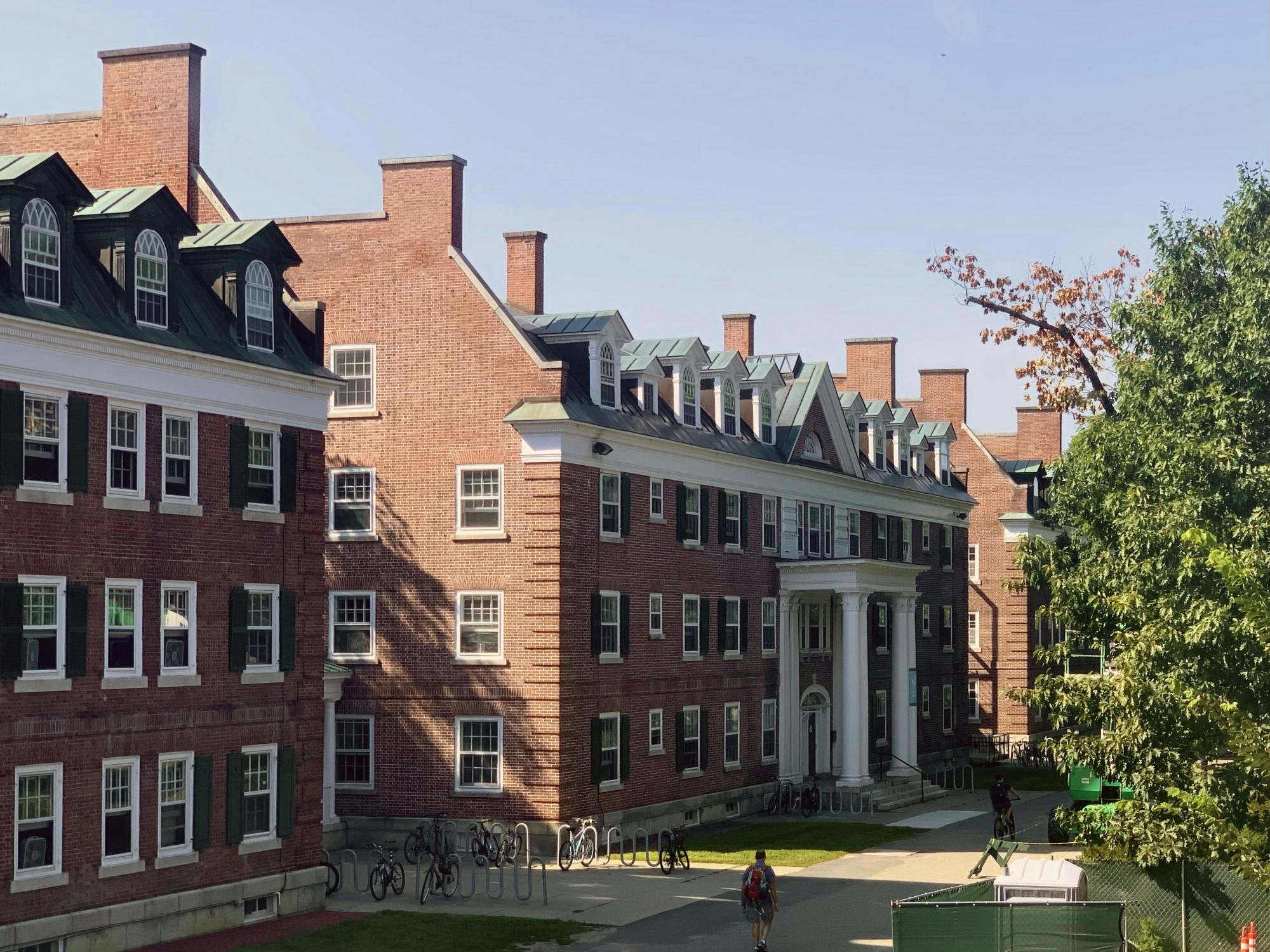This article is featured in the 2021 Freshman special issue.
Throughout the past academic year, students’ campus ID cards have only granted them access to their own residence halls due to COVID-19 concerns. This fall, however, the College plans to reinstate “universal access for all students” to all residential spaces during the day, while restricting access after midnight until 8 a.m. the next day, according to associate dean of residential life and residential education director Michael Wooten.
Wooten said that the decision to restrict dorm access during the evening was “really just an attempt to preserve some level of continuity to the safety of the community.” He cited the possibility of residence hall floors becoming “a passageway between two other parts of campus” during cold winter evenings, causing a disruption to students living on the floor.
In recent years, dorm access has been a controversial topic within the Dartmouth community. In the fall of 2019, citing alleged racial bias and vandalism incidents in on-campus dorms during the prior academic year, the College instituted a policy that only permitted students to access College residences within their own housing communities. In addition, access to communal spaces on campus, such as Brace Commons and House Centers A — commonly known as “the Onion” — and B — commonly known as “the Cube”— was restricted to members of certain houses. For example, only students in South and North Park Houses were granted access to House Center A, while only students in Allen and School Houses had access to House Center B. Prior to fall 2019, students had universal access to all undergraduate dorms at all times.
The fall 2019 policy was met with strong resistance from the student body at the time, with 94% of the student body opposing the restrictions, according to a survey fielded by The Dartmouth. Former Student Assembly president Luke Cuomo ’20 and vice president Ariela Kovary ’20 organized a petition encouraging the College to reverse its decision that gathered almost 3,000 signatures.
“I think one of the greatest assets to Dartmouth has always been its openness and its inclusivity in the community,” current SA vice president Maggie Johnston ’22 said. “[The new access policy] felt like a direct challenge to that.”
Benjamin Alford ’22 said they felt that the College’s decision was “confusing” and “frustrating” since the motivation for it was unclear. Though they recognized that incidents of racial bias catalyzed the formation of the policy, they said that the policy would not address a situation in which a member of one housing community committed such an act against another member of their housing community.
“I felt like it was just separating people by house community, which is kind of an arbitrary grouping of people,” Alford noted.
Cuomo and Kovary helped form a working group on campus access — composed of members of Student Assembly and the Interhouse Council — that participated in a series of meetings with Wooten and residential operational staff, according to current Student Assembly president Jennifer Qian ’22. To support their case, Johnston said that the working group brought up potential safety concerns regarding frigid temperatures at night and students being unable to enter residence halls for refuge. She added that they also highlighted the “community factor” and the “exclusivity” of the policy.
These negotiations ultimately prompted the College to partially reverse its decision, allowing universal access from 8 a.m. to 9 p.m. Additionally, universal access to the House Centers and Brace Commons was fully restored.
During this past year, students had access only to their own residence halls due to public health and safety concerns.
“Generally the principle was that you should only have access to the building that you live in and those amenities for the greater public health strategy,” Wooten explained.
He clarified that in some instances, such as for students living in School House, students were able to access other dorms in their housing communities to use amenities such as the ice machine and laundry, which were not available in their own dorms.
Sydney Fortner ’24 said that when she was living on campus in the spring, her key card mistakenly granted her access to all dorms in South House temporarily — even though she should have just had access to her own building within South House — which she described as “awesome,” as she did not have to wait outside her friends’ dorms.
“I think dorm access is crucial for social networking and friends,” Fortner added. “Allowing these key cards to work on all the doors will integrate students and bring them together.”
According to Fortner, the only drawback to the universal access policy would be security. She said that universal dorm access may make it easier for students to enter a room that is not theirs and steal the belongings of other students. However, she said she thinks that if students locked their doors, it wouldn’t pose much of an issue.
Leah Branstetter ’23 said that she would support a policy that gives students universal access to residence halls 24 hours a day.
“People text their friends and they let them into their dorms anyway,” Branstetter said. “I mean, it’s 30 seconds out of my day to let somebody in the dorms, but also, at the same time, if I’m hanging out with my friends, I’ve got to walk all the way down from the fourth floor to go and let them in.”
Qian and Johnston said that SA is not currently planning to pursue further action regarding the dorm access policy, but they expressed their support for maintaining an open campus.
“Maggie and I are really passionate about helping keep spaces open and building back community at Dartmouth” Qian noted. “I’m looking forward to having a lot of events where various Dartmouth community members can come together and really get to know each other and build back some of the connections that were lost during COVID.”





